Mental math skills Numbers Worksheets for Ages 4-7
5 filtered results
-
From - To
Enhance your child's math journey with our Mental Math Skills Numbers Worksheets, designed specifically for kids aged 4-7. These engaging and interactive worksheets help young learners develop their mental calculation abilities, laying a strong foundation for future math success. With colorful illustrations and fun exercises, children will practice essential skills such as counting, addition, and subtraction, all while fostering their critical thinking and problem-solving abilities. Our worksheets encourage independent learning, making math enjoyable and accessible. Perfect for both classroom and home use, these resources will ensure your little ones develop confidence and proficiency in essential mental math skills. Download now!
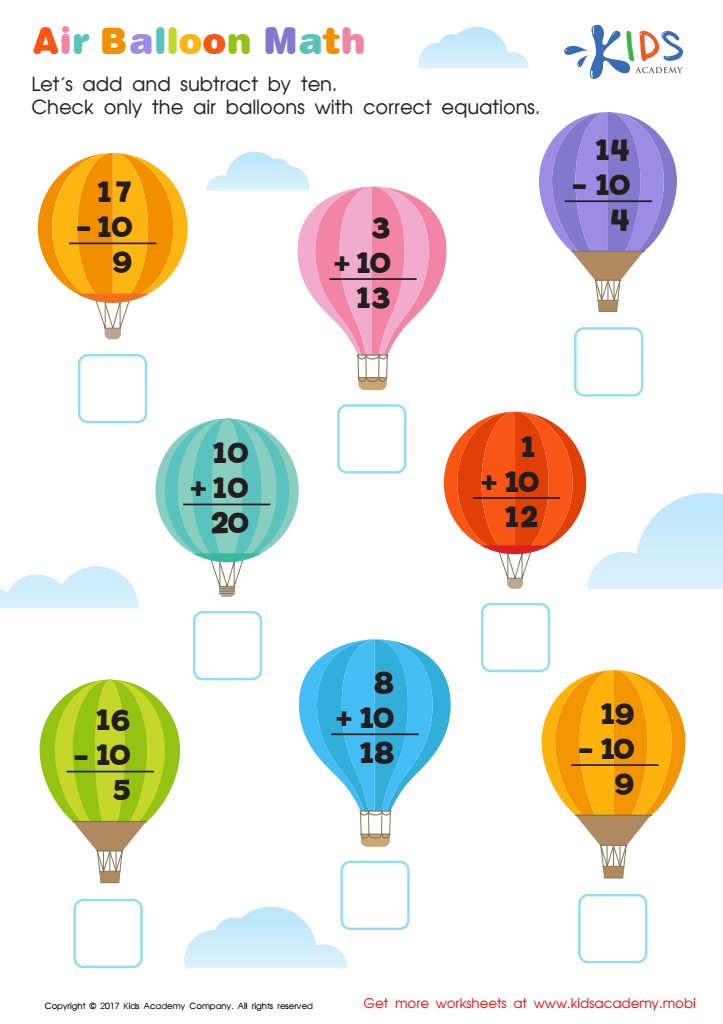

Air Balloon Math Worksheet
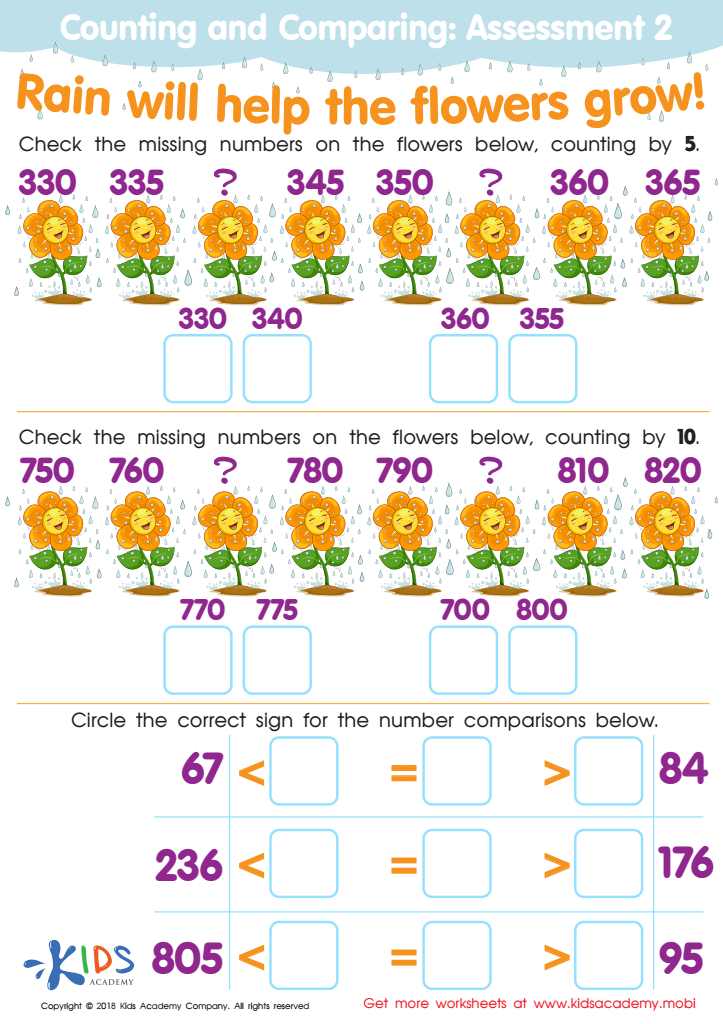

Counting and Comparing: Assessment 2 Worksheet
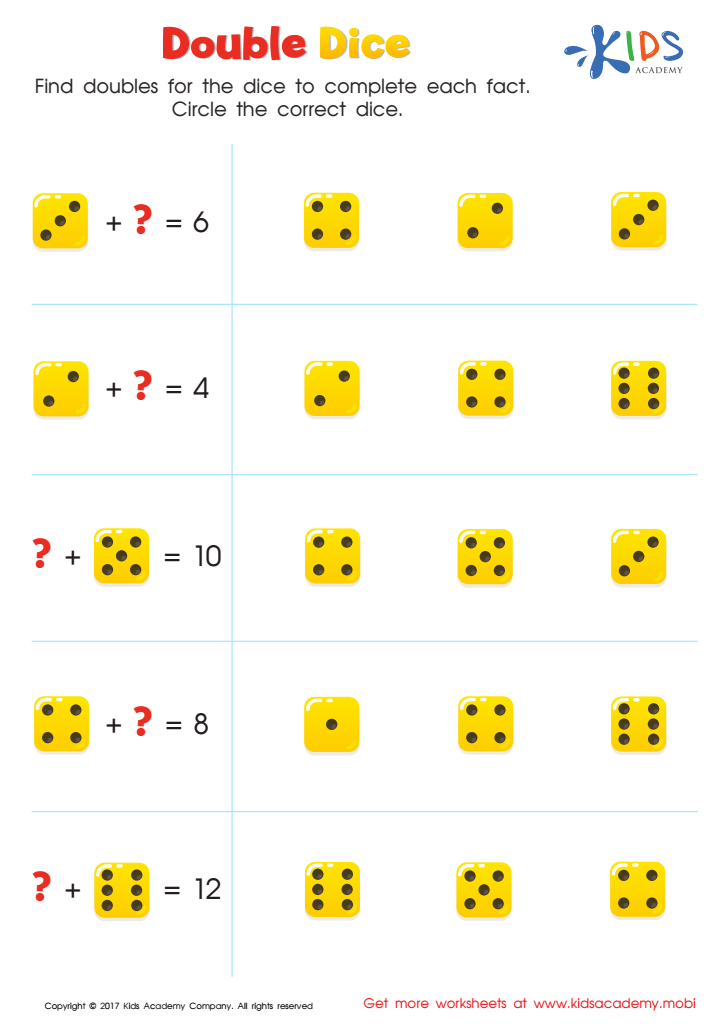

Addition Facts: Double Dice Worksheet
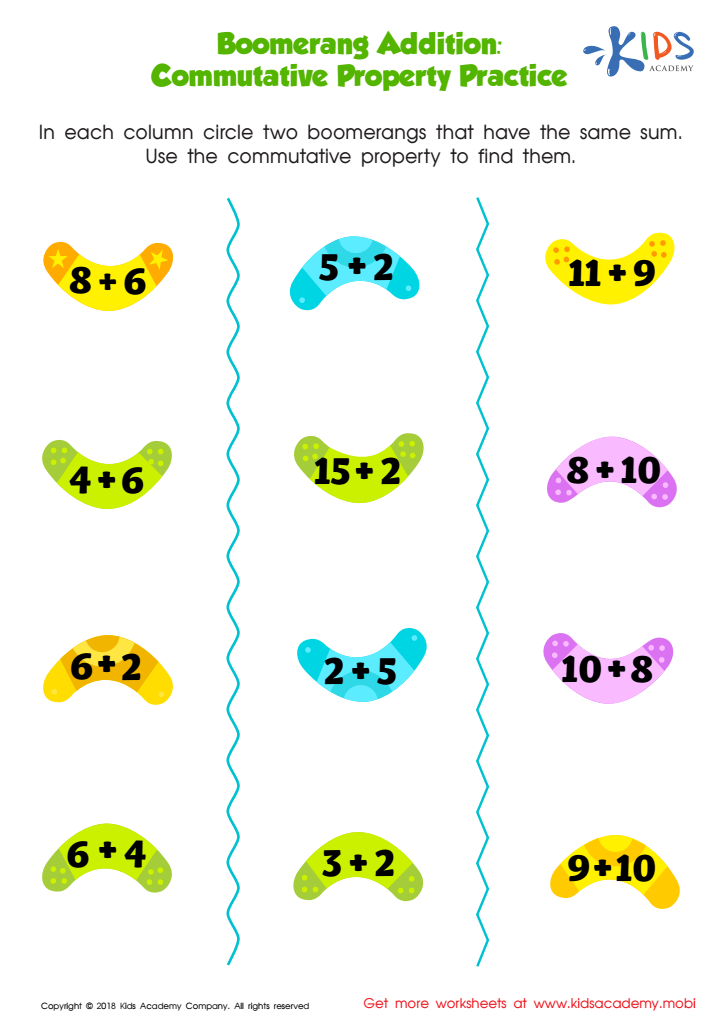

Boomerang Addition Worksheet
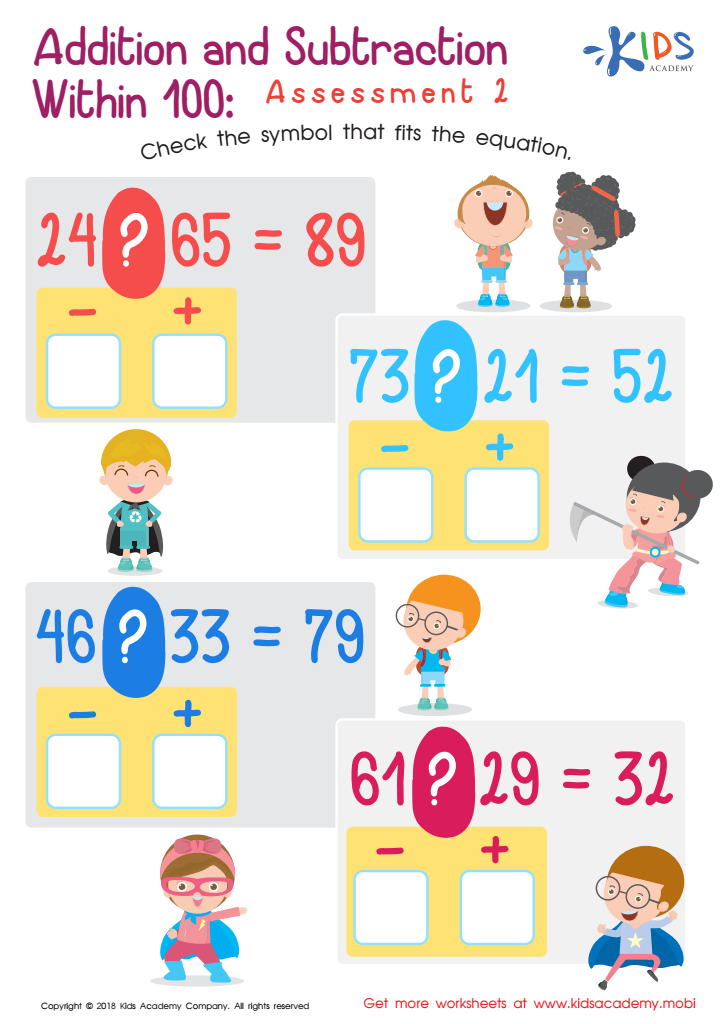

Addition and Subtraction Within 1: Assessment 2 Worksheet
Parents and teachers should prioritize mental math skills for children ages 4-7 because these foundational abilities lay the groundwork for future mathematical understanding and overall cognitive development. Engaging young learners in mental math fosters not only a sense of confidence but also a genuine interest in mathematics. At this age, children are naturally curious and eager to explore concepts, making it an ideal time to introduce mental arithmetic through fun games and daily activities.
Developing mental math skills enhances problem-solving abilities, encouraging children to think critically and creatively. It sharpens their number sense, allowing them to visualize numbers and quantities, which is essential for grasping more complex mathematical concepts later on. Moreover, mental math promotes memory retention, as children learn to recall basic facts and strategies without relying on external aids.
Furthermore, in our increasingly digital world, having strong mental math capabilities equips children with essential tools for everyday life — from budgeting allowances to measuring ingredients in cooking. By investing time and effort in promoting mental math, parents and teachers help shape confident, capable learners who will carry these skills into their academic pursuits and beyond. Ultimately, prioritizing mental math is an investment in a child’s holistic development.

 Assign to My Students
Assign to My Students
















